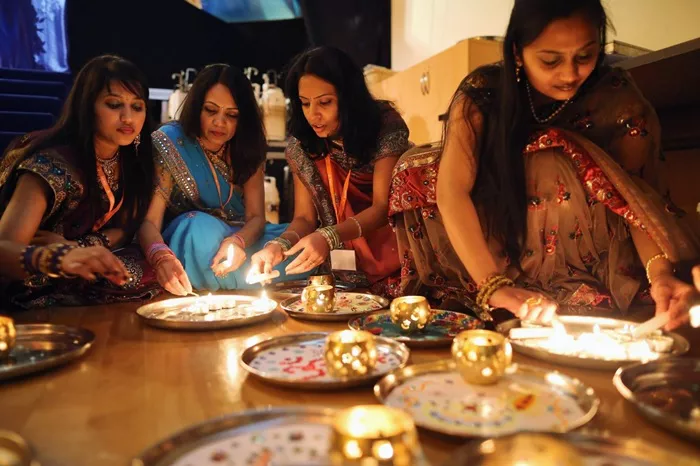As the United Kingdom becomes increasingly diverse, calls to recognise major religious festivals such as Eid, Diwali, Vaisakhi, and Rosh Hashanah as official public holidays have gained renewed attention. Currently, millions of people across the country observe these significant occasions, often having to use personal leave or special permissions to celebrate.
This growing conversation around extending public holiday status beyond traditional Christian festivals like Christmas and Easter reflects wider debates on inclusion and representation in a multi-faith society.
Public Opinion: Mixed but Evolving
A recent poll within the Harrow Online Facebook community revealed divided views on whether all major religious festivals should be granted public holiday status. While some strongly support broader recognition, others express concerns about the implications.
History of the Debate
The idea is not new. In 2014, a petition advocating for Eid and Diwali to be recognised as public holidays gathered over 120,000 signatures, prompting a parliamentary debate. Conservative MP Bob Blackman argued that such recognition would demonstrate Britain’s embrace of Muslim and Hindu faiths and foster community cohesion.
However, the government rejected the proposal, citing economic concerns. Officials warned that adding public holidays could cost the UK economy up to £2.3 billion in lost productivity—a figure that remains a significant barrier today.
Renewed Efforts and Parliamentary Discussions
In 2018, separate petitions for Eid and Diwali again attracted tens of thousands of signatures and were combined for parliamentary consideration. Labour MP Gareth Thomas advocated for official recognition not only of Eid and Diwali but also Jewish holidays such as Yom Kippur. He emphasised the desire of minority faith communities to feel valued and questioned the accuracy of government cost estimates. Thomas also referenced Labour’s proposals to introduce bank holidays for each nation’s patron saint as precedent for accommodating religious diversity.
Despite this, the government reaffirmed its position against introducing additional bank holidays.
Support from Local Leaders and Younger Generations
London Mayor Sadiq Khan, a practicing Muslim, has been a vocal supporter of recognising diverse religious festivals. While lacking authority to designate national holidays, Khan hosts annual public events in Trafalgar Square celebrating Eid, Diwali, Chanukah, and others, highlighting their importance to London’s cultural fabric.
A 2024 UK-wide poll by Hyphen and Savanta found that 87% of British Muslims aged 16–24 supported a public holiday for Eid. Among non-Muslims in the same age group, 62% believed employers should grant leave to Muslim colleagues on Eid.
Workplace Adaptations and Flexible Leave
Some UK employers, including Monzo and Grant Thornton, have introduced policies allowing staff to swap national bank holidays for personal or religious holidays, reflecting growing workplace flexibility.
Government Position and Broader Considerations
The UK government’s official stance remains unchanged: no plans currently exist to add new public holidays for religious observances. Economic concerns persist as the principal reason.
There is also debate over which festivals would qualify. If Eid and Diwali were recognised, questions arise about including Vaisakhi for Sikhs or Jewish holidays such as Rosh Hashanah and Yom Kippur. The National Secular Society cautions against setting precedents in a multi-faith country, advocating instead for flexible arrangements in workplaces and schools.
Possible Compromises and Local Recognition
Some advocates propose introducing a limited number of new holidays for key festivals like Eid al-Fitr and Diwali as symbolic steps. Others suggest rotating “Diversity Days” or floating holidays that employees can allocate to religious or cultural celebrations of their choice.
At the local level, councils in diverse communities such as Harrow, Brent, and Leicester already avoid scheduling major meetings or school events on significant religious days. Though not official holidays, these measures indicate increasing acknowledgment of religious diversity.
Public celebrations are also becoming more visible nationwide, with Diwali light displays in central London, Eid festivals in public parks, and Vaisakhi parades attracting participants from various backgrounds.
Community Perspectives
In Harrow, home to large Muslim, Hindu, and Sikh populations, many residents support expanded recognition of religious festivals. One local Facebook user commented, “We get Christmas and Easter automatically – why shouldn’t everyone else get their big days too?”
Looking Ahead
Without a major policy shift, the addition of Eid or Diwali to the UK’s bank holiday calendar seems unlikely in the near term. However, with changing public attitudes—especially among younger generations—and some businesses adopting more inclusive leave polic

